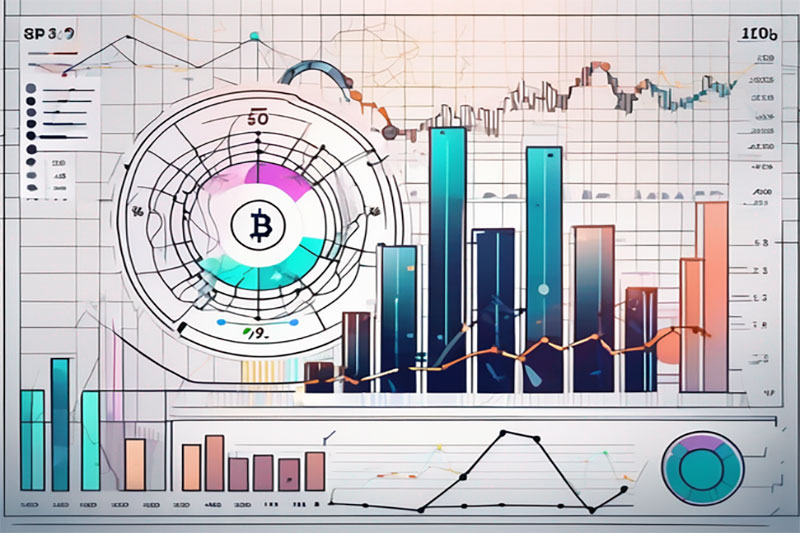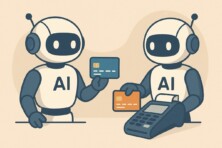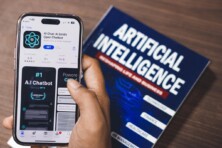The world of day trading has always been an exciting and high-stakes game. Traders analyze market trends, study charts, and make split-second decisions that can make or break their profits. But with the advent of artificial intelligence (AI), particularly Quantum AI, the landscape of day trading is undergoing a profound transformation, well-equipped with sophisticated Analytical tools. In this article, we will explore the basics of day trading, the role of technology in this field, and how AI is revolutionizing the way traders operate.

Understanding the Basics of Day Trading
Day trading is a form of short-term trading where traders buy and sell financial instruments within the same day. It requires quick thinking, careful analysis, and a keen eye for market trends. Successful day traders are always on the lookout for opportunities to make quick profits.
Historically, day traders relied heavily on their analytical skills and intuition to predict market movements. However, with advancements in technology, the game is changing.
The Role of Technology in Day Trading
Technology has always played a crucial role in day trading. The introduction of electronic trading platforms made it easier and faster for traders to execute their trades. Real-time market data and advanced charting tools provided traders with valuable insights.
Today, technology continues to shape the world of day trading. From algorithmic trading to high-frequency trading, technology has become an integral part of the trading process. However, it is the rise of AI that is bringing about a new era in day trading.
Defining AI in the Context of Trading
Artificial intelligence refers to the simulation of human intelligence in machines that are programmed to think and learn like humans. In the context of trading, AI algorithms are designed to analyze vast amounts of data, identify patterns, and make predictions.
Unlike traditional trading strategies that rely on human decision-making, AI systems can process and analyze large volumes of data in real-time, enabling them to make faster and more informed trading decisions.
The Intersection of AI and Day Trading
The integration of AI and day trading is a game-changer. AI-powered trading systems are capable of processing vast amounts of data and generating insights that human traders might miss. Let’s explore how AI is revolutionizing day trading.
How AI is Revolutionizing Day Trading
AI systems can analyze market data, news feeds, social media sentiment, and other relevant information to identify trading opportunities. These systems can also adapt and learn from past trading data to refine their strategies over time. The ability of AI to process and analyze data at an unprecedented scale gives traders a significant advantage.
Furthermore, AI algorithms can execute trades at lightning speed, helping traders capitalize on market movements before human traders can even react. This speed and accuracy have the potential to significantly enhance trading profits.
AI Algorithms and Predictive Analysis in Trading
AI algorithms can analyze historical market data to identify patterns and trends, enabling traders to make more accurate predictions. These algorithms can also learn from past trading patterns and adjust their strategies accordingly. As a result, traders can make better-informed decisions and increase their chances of success.
Moreover, AI algorithms can perform complex risk calculations and help traders manage their risks more effectively. This ability to analyze risk factors in real-time allows traders to take appropriate measures to protect their investments.
Benefits of AI in Day Trading
The integration of AI in day trading offers several benefits that can significantly enhance trading efficiency and profitability. Let’s delve into some of these advantages.
Enhancing Trading Efficiency with AI
AI systems can analyze vast amounts of data quickly and accurately. This allows traders to identify trading opportunities and execute trades in real-time. With AI-powered trading systems, traders can react to market movements faster, giving them a competitive edge.
Furthermore, AI systems can continuously monitor and analyze market conditions, adjusting trading strategies accordingly. This dynamic approach to trading enables traders to stay ahead of the curve and make informed decisions.
Risk Management and AI
Risk management plays a crucial role in day trading. AI algorithms can analyze risk factors and provide real-time insights to help traders manage their risks effectively. By identifying potential risks and implementing appropriate risk mitigation strategies, traders can minimize losses and protect their capital.
Moreover, AI systems can automate trading processes, reducing the risk of human error. With automated trading, traders can execute trades precisely according to predefined parameters, eliminating emotional bias and improving the overall success rate.
Challenges and Concerns with AI in Day Trading
While AI presents exciting opportunities for day traders, it also comes with some challenges and concerns. Let’s explore these aspects.
Ethical Considerations in AI Trading
AI-powered trading systems can execute trades at lightning speed and react to market movements faster than human traders. However, this speed can also amplify market volatility and create instability. It is crucial to ensure that AI systems are regulated and monitored to prevent any manipulative or unethical practices.
Furthermore, there is a concern that reliance on AI systems could lead to a lack of transparency and accountability. Traders need to be aware of the limitations and potential risks associated with AI trading.
Potential Risks and Limitations of AI in Trading
Despite its many benefits, AI trading is not without risks. AI algorithms rely heavily on historical data, and their predictive capabilities are limited to patterns and trends observed in the past. They may not be able to anticipate entirely new market situations or sudden shifts in market sentiment.
Moreover, AI systems are susceptible to errors and biases, especially if the underlying data used for training is flawed or biased. This can lead to incorrect predictions and potentially significant financial losses.
The Future of AI in Day Trading
As AI technology continues to evolve, its impact on day trading is only expected to grow. Let’s explore some of the emerging AI trends in day trading and its long-term implications.
Emerging AI Trends in Day Trading
One emerging trend is the use of deep learning algorithms in trading. These algorithms can analyze unstructured data, such as news articles and social media feeds, to gain insights into market sentiment. By incorporating these insights into their trading strategies, traders can make more informed decisions.
Another trend is the use of reinforcement learning algorithms in trading. These algorithms can learn from past trading experiences and adapt their strategies based on rewards and penalties. This approach allows AI systems to continually improve their trading performance over time.
The Long-term Impact of AI on Day Trading
The long-term impact of AI on day trading is likely to be significant. AI systems have the potential to automate many aspects of trading, reducing human intervention and improving efficiency. This automation could lead to lower trading costs, increased liquidity, and more opportunities for small investors.
However, it is important to strike a balance between automation and human expertise. While AI can enhance trading efficiency, human traders still play a vital role in making strategic decisions and managing risks effectively.
AI and the Future of Day Trading
In conclusion, AI is revolutionizing the world of day trading. With its ability to analyze vast amounts of data, identify patterns, and make predictions, AI-powered trading systems offer traders a significant advantage. However, as with any technology, there are challenges and concerns that need to be addressed. By embracing AI while remaining vigilant to the potential risks, day traders can harness the power of this technology to thrive in an ever-changing market.









